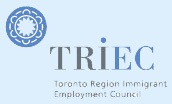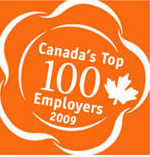Employers cutting post-retirement benefits
 The 2008 Mercer survey on post-retirement trends reveals that in an environment where costs continue to increase, employers are having difficulty paying retiree benefits. They are being forced to balance the desire to provide employees with post-retirement benefits and the need to control escalating costs. According to the survey, in the last three years one third of Canadian companies surveyed have reduced the benefits they provide for retired employees. In addition, 21% of companies expect to make reductions in the next three years, compared to 5% per cent who expect to make improvements. Some companies are also considering eliminating post-retirement benefits for new hires.
The 2008 Mercer survey on post-retirement trends reveals that in an environment where costs continue to increase, employers are having difficulty paying retiree benefits. They are being forced to balance the desire to provide employees with post-retirement benefits and the need to control escalating costs. According to the survey, in the last three years one third of Canadian companies surveyed have reduced the benefits they provide for retired employees. In addition, 21% of companies expect to make reductions in the next three years, compared to 5% per cent who expect to make improvements. Some companies are also considering eliminating post-retirement benefits for new hires.
*The Mercer survey is based on responses submitted by 94 Canadian companies with more than 132 types of benefit plans.
For more worker mobility between Canadian provinces
 On January 16, Stephen Harper and provincial and territorial premiers ratified two new amendments to the Agreement on Internal Trade (AIT). One of them is designed to improve the internal mobility of labour in Canada. As of April 1, any worker certified for an occupation by a regulatory authority of one province or territory is to be recognized as qualified for that occupation across the country.
On January 16, Stephen Harper and provincial and territorial premiers ratified two new amendments to the Agreement on Internal Trade (AIT). One of them is designed to improve the internal mobility of labour in Canada. As of April 1, any worker certified for an occupation by a regulatory authority of one province or territory is to be recognized as qualified for that occupation across the country.
Economic crisis: layoffs and salary cuts
 As the financial crisis pummels the economy, Canadian companies are preparing to confront the recession. How? By planning layoffs, salary or merit reductions, according to the results of a survey in November 2008 of 138 Canadian companies by consulting firm Watson Wyatt. The survey revealed that 44% of companies polled were planning layoffs and salary cuts. Similarly, merit budgets were expected to decrease by 39% on average. The survey also specified that 41% of companies had already stopped or would freeze new hires, and that 31% of them had gone or would be going through organizational restructuring.
As the financial crisis pummels the economy, Canadian companies are preparing to confront the recession. How? By planning layoffs, salary or merit reductions, according to the results of a survey in November 2008 of 138 Canadian companies by consulting firm Watson Wyatt. The survey revealed that 44% of companies polled were planning layoffs and salary cuts. Similarly, merit budgets were expected to decrease by 39% on average. The survey also specified that 41% of companies had already stopped or would freeze new hires, and that 31% of them had gone or would be going through organizational restructuring.
Salary discrimination: Radio-Canada threatened with lawsuit
![]() Ten years after the filing of a pay equity complaint by the Syndicat des communications de Radio-Canada, a report by the Canadian Human Rights Commission (CHRC) has recommended that the case be tried. The CHRC concluded that in 1998–99, the first year of the complaint, seven mainly female job classifications including research assistants, researchers and radio and television production assistants could qualify for salary adjustments. Since the very beginning of the case, Radio-Canada has always denied the existence of any form of gender-based pay inequity.
Ten years after the filing of a pay equity complaint by the Syndicat des communications de Radio-Canada, a report by the Canadian Human Rights Commission (CHRC) has recommended that the case be tried. The CHRC concluded that in 1998–99, the first year of the complaint, seven mainly female job classifications including research assistants, researchers and radio and television production assistants could qualify for salary adjustments. Since the very beginning of the case, Radio-Canada has always denied the existence of any form of gender-based pay inequity.
Work and family life: Canadians having difficulty striking a balance
 The Vanier Institute of the Family has just released two disturbing reports regarding the balance between work and family life in Canada. The two reports paint a picture of an imbalance that has worsened in the past ten years. Over the past twenty years, Canadians are spending about five weeks less each year with their families.
The Vanier Institute of the Family has just released two disturbing reports regarding the balance between work and family life in Canada. The two reports paint a picture of an imbalance that has worsened in the past ten years. Over the past twenty years, Canadians are spending about five weeks less each year with their families.
Canada most welcoming to expats
 According to the HSBC "Expat Experience" survey of 2,155 expatriates all over the world, Canada, Germany, and Spain are perceived as the countries easiest to settle down in. The survey focused on the integration challenges faced by expats, such as social and cultural differences. Expatriates ranked countries according to four criteria, among others: ease of making friends, joining cultural or other organizations, learning the local language, and buying property. All expats need to feel they belong, feel at home and have friends. In Canada, 95% of expatriates think that the country is welcoming and that it is easy to make friends. The countries where integration is most difficult include Australia, the United Arab Emirates and China.
According to the HSBC "Expat Experience" survey of 2,155 expatriates all over the world, Canada, Germany, and Spain are perceived as the countries easiest to settle down in. The survey focused on the integration challenges faced by expats, such as social and cultural differences. Expatriates ranked countries according to four criteria, among others: ease of making friends, joining cultural or other organizations, learning the local language, and buying property. All expats need to feel they belong, feel at home and have friends. In Canada, 95% of expatriates think that the country is welcoming and that it is easy to make friends. The countries where integration is most difficult include Australia, the United Arab Emirates and China.
2008 Immigrant Success Award winners
 The Toronto Region Immigrant Employment Council (TRIEC), which aims to promote the integration of immigrants into the labour force, has just announced the winners of its annual challenge. The Immigrant Success (IS) Awards recognize employers and individuals in the Toronto Region who have a proven track record of achievement in recruiting, retaining and promoting skilled immigrants. This year's winners include Nytric, CH2M HILL, Procter and Gamble and Ernst and Young. Via this award, the organization hopes to incite Toronto companies to optimize their recruiting and promotion of skilled new Canadians.
The Toronto Region Immigrant Employment Council (TRIEC), which aims to promote the integration of immigrants into the labour force, has just announced the winners of its annual challenge. The Immigrant Success (IS) Awards recognize employers and individuals in the Toronto Region who have a proven track record of achievement in recruiting, retaining and promoting skilled immigrants. This year's winners include Nytric, CH2M HILL, Procter and Gamble and Ernst and Young. Via this award, the organization hopes to incite Toronto companies to optimize their recruiting and promotion of skilled new Canadians.
50 best employers in Canada in a better position to face economic crisis ?
 Companies who made the 50 Best Employers in Canada 2009 list have more engaged employees than the average company. According to the 10th edition of the annual Hewitt & Associates study, the "average employee engagement score" of this year's 50 Best Employers is 76%, or 22% higher than the average of other participants. The study also highlights primary differentiators for the quality of management practices—senior leaders at the 50 Best Employers foster frequent two-way communication, and place more emphasis on providing learning opportunities, performance management, and human resources programs that meet the needs of each employee.
Companies who made the 50 Best Employers in Canada 2009 list have more engaged employees than the average company. According to the 10th edition of the annual Hewitt & Associates study, the "average employee engagement score" of this year's 50 Best Employers is 76%, or 22% higher than the average of other participants. The study also highlights primary differentiators for the quality of management practices—senior leaders at the 50 Best Employers foster frequent two-way communication, and place more emphasis on providing learning opportunities, performance management, and human resources programs that meet the needs of each employee.